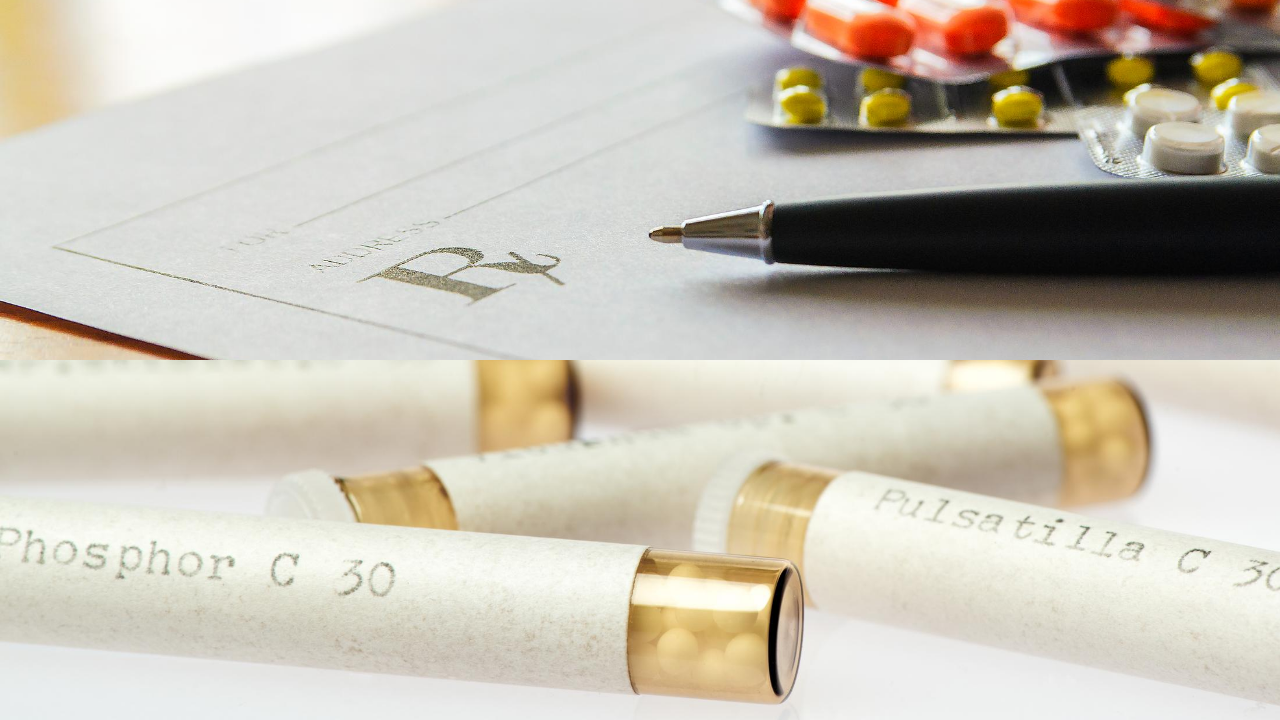Homeopathy Tips Newsletter
The Role of Imagination in Healing

Imagination. Now, what could that possibly have to do with homeopathy? Plenty, if you are guiding and inspiring your client to a better state of health.
Let's look at the role of imagination in healing. First, let's read what Webster’s New World Dictionary has to say about it.
Imagination:
- 1a. The act or power of forming mental images of what is not actually present.
- 1b. The act or power of creating mental images of what has never been actually experienced, or of creating new images or ideas by combining previous experiences; creative power. Imagination is often regarded as the more seriously and deeply creative faculty, which perceives the basic resemblances between things, as distinguished from fancy, the lighter more decorative faculty, which perceives superficial resemblances.
- 2. Anything imagined; mental image; creation of the mind; fancy.
- 3. a foolish notion; empty fancy.
- 4. The ability to understand and appreciate imaginative creations of others, especially works of art ...
How to Quickly Evaluate a Remedy

When you are receiving a case and have a list of well-selected rubrics that has led to a list of remedies that are being considered for the case, how do you quickly learn about so many remedies that may have come up in the repertization?
It can be overwhelming to have 50 remedies to consider and you might only know a little about 20 of them. How do you quickly learn about the remaining 30 remedies that should be considered? This is where Materia Medica knowledge helps a lot. But honestly, you will never quit learning about remedies. There is simply too much to remember about thousands of remedies. So being able to evaluate a remedy to consider and put in your basket of possible remedy choices is a good skill to have.
First and foremost is knowing what is asking to be healed in the case. Without this, you do not have a case. This will determine the rubrics that are most important and influence your entire case. When you have chosen rubrics that best reflect what is asking to be healed...
Levels of Perception

How the homeopath perceives the case before them will ultimately influence the prescription. If our perception is wrong, even with all of the tools available to us with the repertory and Materia Medica, our prescription will fail. I find that at the very most fundamental level even a prescription made from well-selected remedies of a good repertization is rarely good enough to prescribe the best remedy in the most elegant manner. For this, we need different levels of perception to really see what is asking to be healed.
During case receiving, it is good to keep these ideas about what we are seeing and experiencing in the front of our minds. By this, I do not mean actively thinking about them but being willing and ready to perceive them as they unfold in the case. These levels will all be occurring simultaneously and if we come to the case with a crowded mind, then we will surely miss them. Let the different levels of perception paint a picture for us and we can then translate the stor...
Animal Kingdom Remedies

Last week, I gave a quick overview of the kingdoms. Today I will share with you a bit more about the animal kingdom. The animal kingdom is all about survival. It is eat or be eaten at its basic level. So we find some of the most basic emotions in the animal kingdom. How we relate to another and compete for our existence is a basic theme of the animal kingdom. Because we have many species within the animal kingdom, there are equally as many different behaviors. Only a small fraction of the number of species within the animal kingdom have been homeopathically proven.
How an animal behaves in regards to its survival can be an open window into understanding the remedy. Because all animals behave similarly within their own species, knowing the themes of each is necessary to understanding the remedy. Also knowing about the different behaviors of the sexes within the animal family can be a great insight into how the remedy can be applicable to our human condition.
- Mammals – All mammals h ...
Understanding the Different Kingdoms

When we listen to a case, everything a person says, every gesture they make, including what they wear, will be an expression of the vital force. If we are unprejudiced observers, we can then see the language of a person's dis-ease. This language will many times tell us quickly from which kingdom their dis-ease resides. We can sometimes quickly discern whether the best remedy will be from the animal kingdom, the plant kingdom, or the mineral kingdom. If we are clear about seeing the metaphor of the dis-ease within the appropriate kingdom, we can often make our remedy selection much easier by eliminating the kingdoms that the dis-ease does not belong to.
There are some general guidelines for understanding the kingdoms. I will give a few here but really each kingdom needs a book on its own. I will give a brief overview of each and a more in-depth look into them in later blog posts.
- The animal kingdom is all about survival. Animals are either killing or being killed. It is the threat o ...
The Importance of Rest

Rest is a very important matter that comes up often in practice. Rest can mean many things to many people but I hope to share some ideas that will help you and your client when you see that rest is a part of their healing.
I see the need for rest in most people. In today’s complex and busy world, we seem to always be in response to the dictates of the day. Rarely do we ever just stop to say, "I need rest and I am going to have it today."
Most people work a 40 hour week and have two days off in America. I say most people not counting the business owners, executives, or dedicated workers that will work many more hours. And when our day is done, there are more tasks that need to be performed and attended to before we can retire and call it a day. When I speak with my clients, they usually refer to this as stress in their life. I would agree, but stress means different things to different people. It always demands I ask them the question, "What makes this stressful?" to learn more.
When...
Systems of Prescribing

Homeopathy is not a new medicinal art. It has been around for more than 200 years. The information that we have available to us today is a compilation of two centuries of dedicated homeopaths sharing their knowledge. This is why homeopathy exists today. Had there not been many successes for the many early pioneers of homeopathy, it surely would have passed away as another fad in medicine. But we have many successes and by sharing them openly have expanded homeopathy thereby ensuring its existence.
Along the way, many doctors of medicine have discovered homeopathy and shared their successes with us. I commend them for this. Others have written books with wonderful systems to prescribe by. It is with great reservation that I accept their recommendations.
Homeopathy is as much art as it is science. We have wonderful information and repertories to organize it. If we are good repertizers, we are able to use the repertory to analyze cases including the most important symptoms. This method ...
The Repetition of Dosing

Posology is the science of the dosage of medicines. It is very important in homeopathy. We are always very concerned about finding the correct homeopathic remedy, the simillimum. This is usually the greatest challenge for the homeopath. But after the remedy has been found, it is important to see that the case moves forward and healing is maintained.
Potency selection is the next step in the prescription and it is intimately tied to the repetition of the dose. Hahnemann stressed the minimum dose necessary to inspire the vital force. The potency needs to be slightly stronger than the expression of the vital force. This way it will inspire as the vital force will have a direction to move towards.
With most children and healthier adults that have not been suppressed by years of drug treatment, a single dose is always preferable. It requires more case management because we need to understand how the vital force responded to the dose and the duration of its response. Remember, homeopathy i...
Patient or Client?

In the profession of being a homeopath, we usually engage our services with an exchange of money. Often, we call this business a "practice." It holds by definition but also there are other definitions that I prefer. I do not want to refer to my profession as a practice. I have trained and done my "practice" and now am a professional that is engaged with my clients. They pay me for rendering a professional service of homeopathy. They do not want me practicing on them. This would not be fair if I were still learning yet calling myself a professional. Not that I will ever stop learning homeopathy but I prefer to call my professional work just that; a professional work or business.
When I engage in my business, I refer to everyone who engages me for my professional services as a client. This is what they are. It brings with it a certain responsibility on their part as well as my own. I try to never refer to the client as a patient. By definition to be patient is "to bear pain or trials wi...
The Vessel Needs to Break

When treating chronic illness, there comes a time when the return of old symptoms can challenge the homeopath as to what to do next. If it is not clearly understood where a person is in their healing cycle, it can be most frustrating for the homeopath. He/She may even be tempted to change the remedy because it seems the remedy has stopped working. Understanding the bigger picture is vital to successful case management.
Often, when a person has been doing well and is responding to the most beneficial remedy, a time will come when it seems that all of the old symptoms return. Sometimes this is referred to as an aggravation. If this occurs after years of successful treatment, it can be very confusing. Why after all of this time is the person suffering like when they first started to take the remedy? Shouldn't the person be getting better still?
I have seen this scenario play out many times in the course of healing chronic illness. If it is not understood where the person is at in their ...

